 Your new post is loading...
 Your new post is loading...
"For many dedicated to re-making our schools as hubs of dynamic innovation and creativity, getting good at math or science or literacy might be better found in techniques like inquiry-based learning, less emphasis on standardized testing, and avoiding the soul-numbing “drill and kill” exercises and worksheets used to instill basic skills. But what if the right drill -- without the kill — actually encourages creativity?"
I hope you enjoyed the past post and welcome you to a series of posts of series dedicated to Creativity in digital classroom. I have some reflection, ideas, and some amazing resources to share. ...
"Educators are always striving to find ways to make curriculum relevant in students’ everyday lives. More and more teachers are using social media around lessons, allowing students to use their cell phones to do research and participate in class, and developing their curriculum around projects to ground learning around an activity. These strategies are all part of a larger goal to help students connect to social and cultural spaces."
Failures may hurt, but they can actually have some positive effects on your life and mind.
RSA Animate recently released a video called 'The Power of Outrospection'. The video intrigued me and this post has helped me pull together some of my thoughts about the links between empathy and creativity.
The post explores empathy in a variety of fields, including design, human services, and the creative fields, and the video is also embedded in the post. Take the opportunity to read the post, watch the video, and ponder how empathy allows us to be creative as we look for new solutions for whatever issues we face.
This post begins "The common understanding is that if students work hard in school they earn "A’s." For many however, there is a much straighter route to that "A." Some of the most creative learners are able to figure out what the course expectations are and do the minimum to meet them, and get the grade they want." What happens to students that are bored with the curriculum? What would happen if we moved away from grades, and replaced them with badges? It turns out that there is evidence from a July 2012 report called "Do Schools Challenge Our Students?" This report states "Many schools are not challenging students and large percentages of students report that their work is 'too easy.'" The post also provides some statistical information. The final portion looks at badges vs grades. It notes that switching from "traditional letter grades or percentage grades to badges signifying achievement could open up many possibilities for a more fine-grained tracking of student progress, address some of the criticisms regarding schools not teaching concrete skills, and motivate students to learn" (with additional information also included).
As the Common Core becomes a driving force behind public education it will be interesting to see how the issue of badges vs grades play out.
Check out this post (and the embedded YouTube video) where a 7 year old (who wants" to study robotics at MIT and become a theoretical theorist") designs a Rube Goldberg machine to trap a monster. His description of a Rube Goldberg machine is "a machine that creates a complicated chain reaction to do a simple task." Using a wide variety of materials, including marbles, tubing, pencils, a toaster, books, balls, a paper roll and more he shows us his creativity and ingenuity...as well as resilience. He also shows an understanding of the scientific method, sharing his hypothesis and more. I suspect that many will share this video with others in their schools.
A suggested but not exhaustive list of possible applications that may help foster 21st Century Skills in today's language learners. Although geared to language learners the applications suggested work well in any course. The skills listed (with applications to go with them) are: communication, collaboration, critical thinking and problem solving, creativity and innovation, information literacy, media literacy, technology literacy, flexibility and adaptability, iniative and self-direction, social and corss-cultural skills, productivity and accountability, and leadership and responsibility.
"In an increasingly knowledge-based economy, where the daily tasks required in a large number of jobs require not repetitive button-pushing but independent and complex thinking, we are often exhorted to "be creative" or "use some creativity." Which would be fine, if creativity were a little dance one could do on command like a well-trained circus seal. But, for better or worse, the act of creation contains a certain morsel of irreducible mystery. It's intuitive and holistic, rather than analytical and linear (which is the gear we're usually in when we're struggling to get work done).' This post provides a list of eleven factors that impact creativity, each with an explanation. Some of the factors are: shame, ego, politics, collaborators and deadlines. For more information click through to the post.
This post is written by a student and begins: Can creativity be taught? Absolutely. The real question is: “How do we teach it?” In school, instead of crossing subjects and classes, we teach them in a very rigid manner. Very rarely do you witness math and science teachers or English and history teachers collaborating with each other. Nikhil Goyal, a senior at Syosset High School then provides a look from the student viewpoint about what is and is not working in schools. A great read!
Many creativity research programs are narrowly focused on one aspect of creativity to the exclusion of others; an integrative focus will help move the field forward. This post asks a variety of questions about creativity (quoting from post below): * What is (a) creative (product)?
* How is creativity achieved (the process)? * Who is creative/what makes someone crative (the person)? * What conditions (historically/everyday) are conducive to creativity (the press)? These questions are then explored, with information form a variety of other sources included. Recent articles in the news have suggested that creativity in childen is decreasing. This post provides a look at this issue from perspectives that may be new to you as well as the author's perspective on "what factors are necessary for Genius."
|
How do the arts "“increase students’ college-, career-, and citizenship-readiness in all subjects as well as keep them engaged in school and contribute to their social and emotional health"?
Progressive school admins understand teachers need room to explore and experiment to uncover ways to use technology in creating a culture of innovation.
Mitch Resnik, the creator of the super-simple Scratch programming language and head of the Lifelong Kindergarten group at the MIT Media Lab, gave a TEDx talk about the value of coding and computer literacy in early education.
"I believe that creativity is necessary in today’s classroom. In fact, creativity is one of the important 4 C’s (Critical Thinking, Collaboration, Communication, Creativity) that make up part of the foundation of a 21st century education. The remaining foundation is of course another C (Significant Content). I believe that when you put all of these C’s together you get two more C’s which make up the 'Common Core'."
"The student’s eyes drift to the classroom window and the teacher’s voice fades from consciousness. The daydream begins. It’s a familiar scene, one we have likely both experienced as students and struggled against in our students as teachers. But daydreaming is not what it might seem. Recent research in both psychology and neuroscience makes clear that daydreaming is an essential part of mental processing, reasoning and, yes, even learning."
Not all kids are equally motivated. Students vary tremendously in their motivation, even at an early age. Here is a baker's dozen of motivational strategies that can re-ignite the motivational flame.
An updated and revised look at the three components of digital differentiation by Susan Oxnevad. Each is a ThingLink image, so as you scroll over the image links articles, slideshows, tools and more will be available.
"Who knew a YouTube video of a nine-year old boy's cardboard creation would hit such a nerve?" This post updates us on what has happened since Caine's Arcade went viral. The videographer who made Caine's Arcade provides a look at what his cardboard creation has moved others to create. Caine is also in this video sharing his thoughts, including "the three biggest lessons he's learned in the process of this adventure" (quoted below): 1. Start a business that's fun 2. Use recycled stuff 3. Never give up
Are you looking for ways to foster creativity in your classroom? This post provides some history about the nature of creativity and shares how beliefs have shifted over time. If innovation and creativty is a key component of what students need to learn then how can we go about doing a better job teaching it. A few of the suggestions are below (quoted from the article, although each has additional information). * Embrace creativity as part of learning. * Participate in or create a program to develop creative skills. * Use a creativity model. (Note - one is suggested that has six steps). * See creativity in a positive light. * Explore different cultures. An additional 25 suggestions may be found in the post as well as links to many resources.
How do you assess 21st century skills? This post explores this issue and sugests that "the term 'assessment' needs to be examined. "At its core, assessment should be thought of as an opportunity to give feedback. Without giving students specific, targeted feedback on how they are performing these skills, students will have little opportunity to understand how to improve their level of creativity, become better researchers through increased information literacy skills, become better at collaborating with groups for project creation and problem solving, or develop good habits of mind to become self-directed learners." The question then becomes how do we effectively assess these skills? What criteria should be used? The post provides some suggestions as well as links to a number of resources.
If you are feeling that you are stuck in rut and need to be more creative here are 101 "tips to change your usual mental patterns," How about;
* Taking a walk and looking for something interesting. * Opening up the dictionary to find a new word and then use the word in a sentence. * Taking a different route to school. Another 98 ideas are available in the post!
New research suggests that American schoolchildren are becoming less creative. This post looks at research that documents "a continuous decline of creativity among American schoolchildren over the lats two or three centuries." At the same time research has pointed to the fact that "American ingenuity" is a strength, that Americans are "great innvoators, specialists in figuring new ways of doing things and new things to do." The post includes references to a number of studies and is a part of a series.
|



 Your new post is loading...
Your new post is loading...



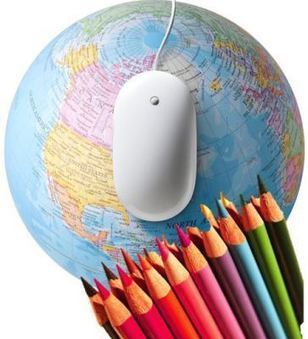
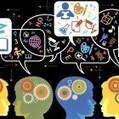
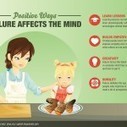
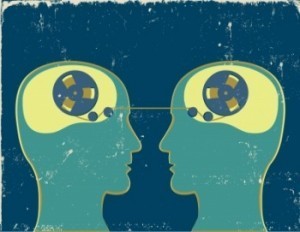


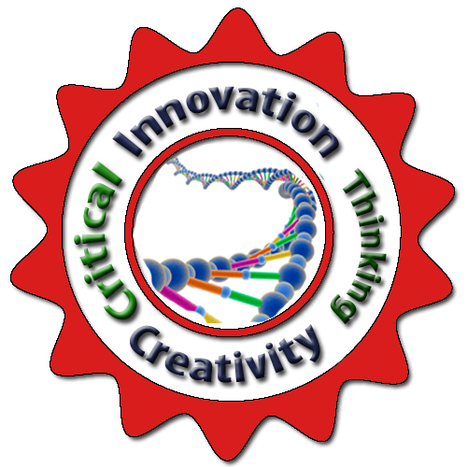
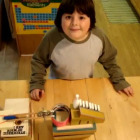


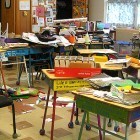





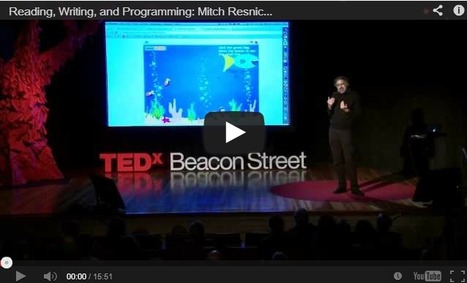


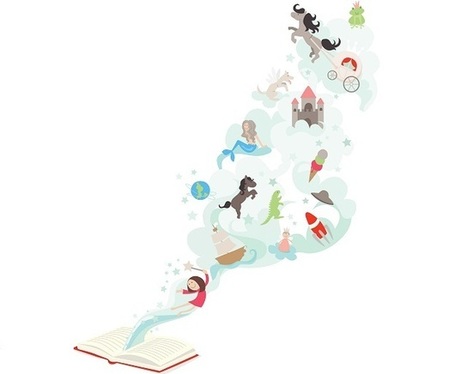

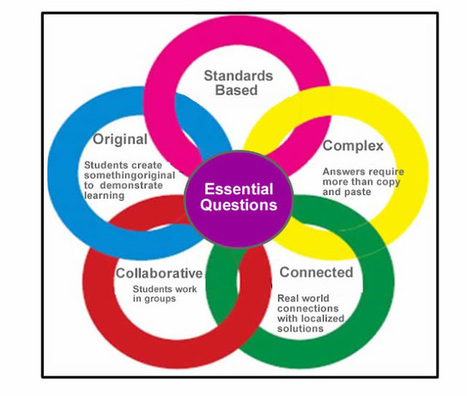


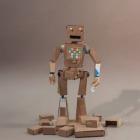
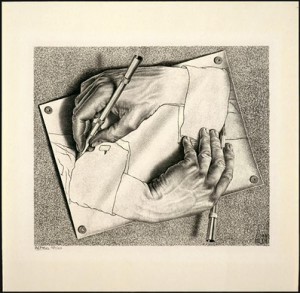










This post explores this question "does creativity come "after lots and lots of rote learning (also called practice) has built a solid foundation of skills."
It also presents the flip side of this issue, noting that aha moments, defined as "breakthroughs [that] come to people who have mastered an area" may not happen to a person who has "mastered something" since "their thinking about it often becomes locked in and it’s difficult for them to break out of this mental straightjacket."
And there is a third way to look at this issue, the belief that "a side-by-side combination of rote work and “aha” moments works better for students."
This post looks at work by Doug Lemov and Kurt Wooten as well as Daniel Willingham.
As educators we are concerned with how to best motivate our students, and this is an issue that impacts us daily. This post may challenge your thinking in a number of areas (and may move you to add some books to your list of summer readings). For more information on this topic click through to the post.